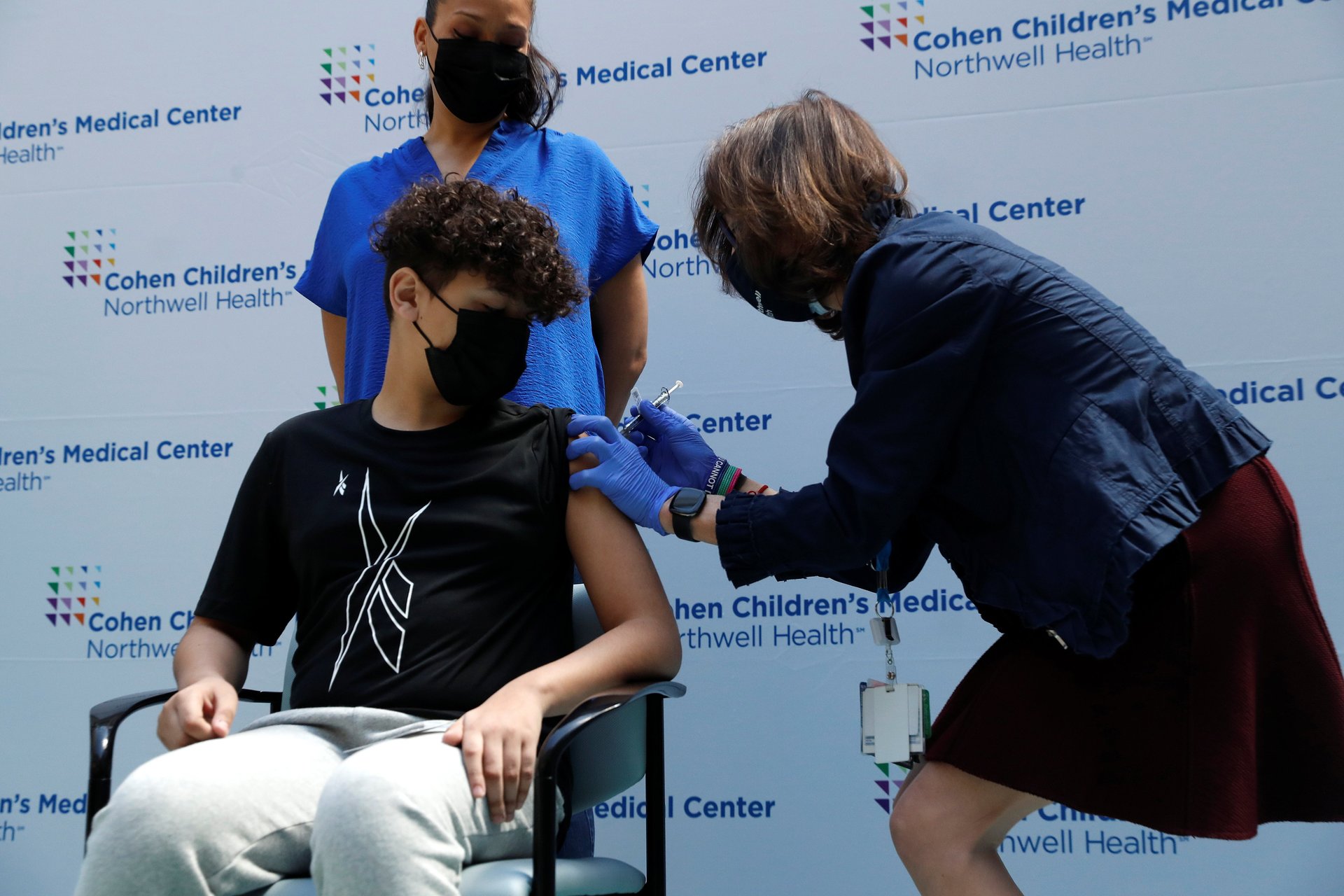Latinos have fewer objections, but more obstacles, to getting their kids vaccinated
The US Food and Drug Administration (FDA) will meet later this month to discuss the emergency authorization of Covid-19 vaccines for children between ages five and 11 after Pfizer’s results showed the vaccine is effective and safe for them.


The US Food and Drug Administration (FDA) will meet later this month to discuss the emergency authorization of Covid-19 vaccines for children between ages five and 11 after Pfizer’s results showed the vaccine is effective and safe for them.
FDA authorization might not do much to convince vaccine-hesitant parents that they should vaccinate their kids. Surveys, including one from the Kaiser Family Foundation (KFF), have found the vast majority of parents plan to either wait before vaccinating their kids, or are opposed to doing so.
But looking at specific subgroups of parents sheds some light on what is holding them back—and it’s not always mistrust of science.
The invisible costs of a free vaccine
A survey of about 1,500 Latino parents in the US conducted by Unidos, the country’s largest Latino advocacy organization, found that they overwhelmingly support vaccinating their kids, but see obstacles on their way to doing so.
Half of Latino parents with children below 12 nationwide plan to vaccinate their kids as soon as it’s possible, and another 9% will do so if required for school attendance, according to the survey.
The survey found Latino parents were highly concerned about the impact of Covid-19 on their children’s and families’ health and finances, as 84% of responders said they were directly affected by the pandemic. More than half the responders had a close family member who had Covid-19, 22% had it themselves, and just as many lost a loved one to the disease.
When it comes to containing the virus, Latino parents support a wide range of measures, including mask mandates and initiatives to vaccinate more people.
And while as many as 62% across the US have vaccinated their kids above 12 (and up to 73% did so in California), they experienced barriers to doing so.
Among those who were able to vaccinate their children, a quarter of the respondents said they were asked for a government identification when getting the vaccine, which might deter undocumented immigrants. Other obstacles were long waits to schedule the appointments (18%), distance from the nearest vaccine site (17%), and work and childcare schedules that interfered with their ability to book a shot (15%). Latino parents also had trouble finding clear information in Spanish about getting a vaccine and its safety (13%), and 8% of them were even asked for a co-pay or fee, although vaccines should be free. Parents also worried about having to take time off work if their children experienced side effects from the vaccine.
Many of these barriers that might dissuade Latinos from vaccinating children apply to adults, too, which might help explain why they are lagging behind the country’s average when it comes to immunization status.
How to improve vaccination access
Asked about the measures that might make it easier to obtain vaccines, the respondent listed extended vaccination hours at clinics as their first priority (56%) followed by making Covid-19 vaccines available alongside other routine shots (53%), providing financial assistance to cover transportation or childcare costs (53%). Other popular measures among responders were vaccine drives in schools and workplaces, and dropping any ID requirements.